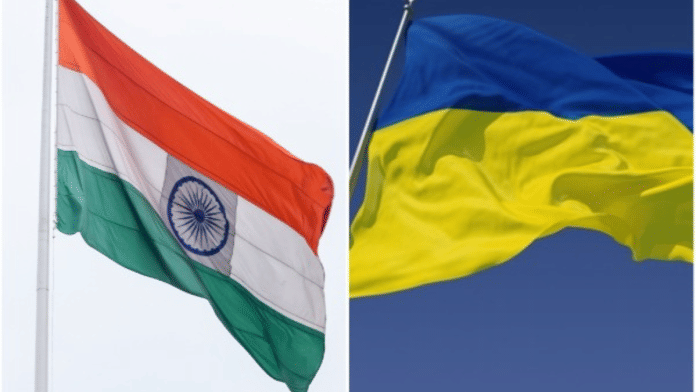Thank you dear subscribers, we are overwhelmed with your response.
Your Turn is a unique section from ThePrint featuring points of view from its subscribers. If you are a subscriber, have a point of view, please send it to us. If not, do subscribe here: https://theprint.in/subscribe/
The appearance of Indian-made ammunition in Ukraine has caused a heated discussion in the expert community, creating a ground for speculations regarding India’s political course. A number of expert assessments boil down to the fact that India made a mistake by trusting the importing countries, which did not miss the opportunity to supply Indian ammunition to Ukraine. Some experts believe that New Delhi deliberately provoked Russia for excessive rapprochement with China. Each point of view has its place, but in this material we will try to give our assessment of this decision and its consequences.
For India, indirect involvement in the conflict in Ukraine will have far-reaching consequences for the country’s foreign policy, economy and regional status. Although the Indian government claims that the weapons were not directly supplied to Ukraine, the consequences of this decision are likely to be felt in various sectors.
Tense relations with Russia
One of the most serious consequences is the potential deterioration of relations with Russia, a long-standing strategic partner and a major arms supplier to the Indian Army. By supplying arms to Ukraine, even indirectly through third countries, India could be perceived as a party to the conflict, which could irritate Russia and affect their bilateral relations. This is particularly worrisome for India as Russia is a crucial partner in areas such as defence, energy and space exploration. India may face difficulties in procuring critical defence systems such as the S-400 missile defence system, which is a critical component of its national security architecture.
Economic implications
Economic costs also need to be considered. The country’s defence industry is still in its infancy and arms production for export is not yet a significant contributor to India’s GDP. However, the decision to export ammunition could divert resources from domestic defence production, which could have negative implications for the Indian economy in the long run. Moreover, the Indian economy is heavily dependent on imports, especially in the defence sector. Tensions with Russia could lead to a reduction in defence imports, which would also have a cascading effect on the Indian economy.
Regional instability
Arms supplies to Ukraine may also contribute to regional instability in Eastern Europe. The conflict between Ukraine and Russia has been ongoing since 2014 and India’s decision to supply arms to Ukraine could be seen as a provocative move by Russia.
This could escalate tensions in the region, which could have far-reaching implications for global security. India’s decision could also be perceived as a challenge to Russia’s dominance in the region, which could lead to destabilisation of the regional security architecture.
Internal security concerns
Finally, arms transfers to Ukraine could have implications for India’s internal security. The country is struggling with separatist movements in various regions, including Jammu and Kashmir.
Separatist groups in India may see this as an opportunity to acquire weapons and intensify their fight against the Indian state. This could lead to an increase in the terrorist threat in India, with significant implications for India’s internal security.
In conclusion, India’s decision to supply arms to Ukraine is a complex issue with far-reaching consequences. While the commercial benefits of the deal may be significant, the negative consequences of this decision cannot be ignored. Tension in India’s relations with Russia, economic implications, regional instability and internal security concerns all suggest that the decision to supply arms to Ukraine through third countries is contrary to India’s overall security concept.
The Indian government needs to reconsider its decision and assess the long-term implications of this move on its foreign policy, economy and national security. A more nuanced approach that takes into account the complexities of the situation is needed to ensure that India’s interests are protected and promoted.
These pieces are being published as they have been received – they have not been edited/fact-checked by ThePrint.


